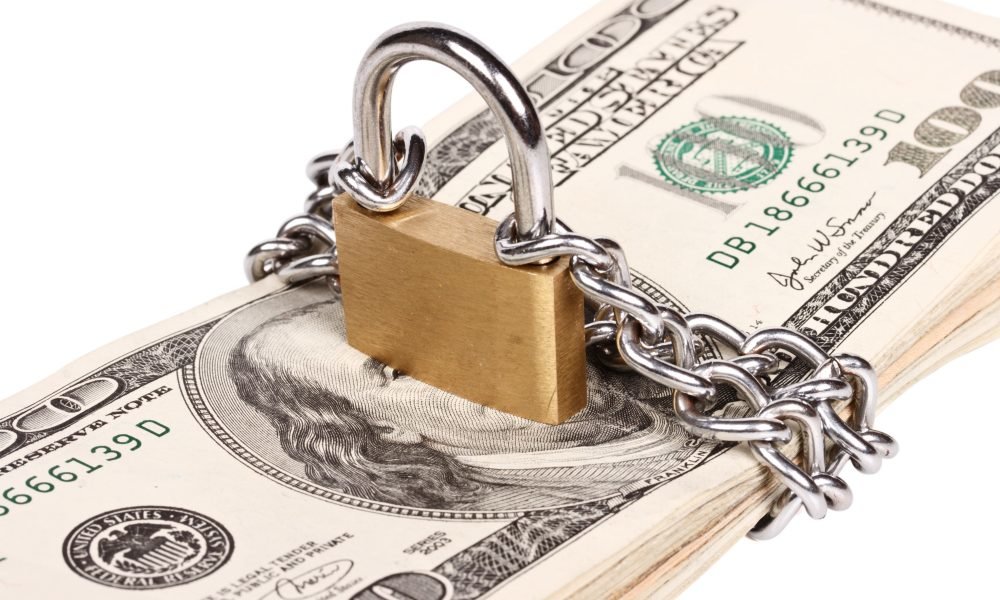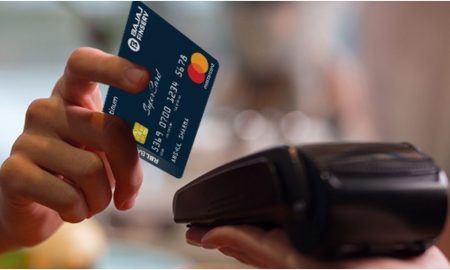
Stuck in a Financial Rut? Here’s 6 Ways To Regain Control of Your Cash

Do you make more than the average, yet live from paycheck to paycheck, not knowing where and what you spent your money on? It’s definitely time to pull yourself out of that financial rut. Managing money involves conscious decision-making—you have to catch yourself before your bad spending habits plunge you even deeper into debt. Here are six new habits you can develop to get yourself out of that financial rut for good.
Track your weekly spending
 You remember the big-ticket purchases in your life, but what about your everyday spending? Taking notes of your purchases, no matter how small—whether it’s filling up the gas tank or picking up a snack at the convenience store—will make you better aware of your spending habits, as well as how much cash is actually leaving your hands. For instance, that bagel and iced coffee you stop for every morning may not seem so bad at $6 total, but multiply that by five days, and you’ll realize that’s $30 blown on breakfast alone! By observing where your money goes, you can figure out where and how to spend less. Which brings us to the next point…
You remember the big-ticket purchases in your life, but what about your everyday spending? Taking notes of your purchases, no matter how small—whether it’s filling up the gas tank or picking up a snack at the convenience store—will make you better aware of your spending habits, as well as how much cash is actually leaving your hands. For instance, that bagel and iced coffee you stop for every morning may not seem so bad at $6 total, but multiply that by five days, and you’ll realize that’s $30 blown on breakfast alone! By observing where your money goes, you can figure out where and how to spend less. Which brings us to the next point…
Cut your workweek spending
A few cups of latte here, lunch at a pricey restaurant here and there, and those frequent trips to the smoothie bar can put a serious dent in your wallet. Challenge yourself to reduce spending during the work week in little ways. You could, for instance:
• Make your own coffee. Skip the coffee shops like Starbucks and save $5 a day by making your cuppa.
• Pack your own lunch. Obviously, this will save you a lot of cash, but an added bonus is you know exactly what you’re putting in your body, so it has a ton of health benefits, too. It’s definitely a healthy habit both for your finances and your body.
• Of course, from time to time, you’ll need to unwind from work. This need not be expensive, however, if you take advantage of specials. Pay only half of your usual bill by going to your favorite spots during Happy Hour. Don’t forget to check social media for after-work specials, discounts, and coupons that are not advertised elsewhere.
Keep a close eye on your finances
Open every financial statement you have—credit cards, 401(k), mortgage, bank, the works. Only when you see where you stand financially can you set your priorities. Better yet, sign up for an online banking account. This is free and relatively safe, as long as you use a private computer. With online banking, you can conveniently pay your bills real time. And because your account is credited or debited for each payment and deposit, it makes it easier to stay on budget and on track of your financial goals.
Save automatically
Most people wait to receive a bonus or tax refund to set aside money for the rainy days. Don’t. Instead, put up an automatic savings deposit monthly. This will force you to save money, and your nest egg will get bigger quicker than you think.
Adopt a surefire credit card strategy
 Are you up to your neck in credit card debt? The sooner you tackle your credit card woes, the quicker you get out of that pickle. You may have no control over the housing and stock market, but you do have complete control over your credit card debt. Each time you pay off the plastic with a 12% interest rate, you’re actually getting a 12% return on your cash! Here are other things you can do to take it a step further:
Are you up to your neck in credit card debt? The sooner you tackle your credit card woes, the quicker you get out of that pickle. You may have no control over the housing and stock market, but you do have complete control over your credit card debt. Each time you pay off the plastic with a 12% interest rate, you’re actually getting a 12% return on your cash! Here are other things you can do to take it a step further:
• Opt for a balance transfer card that comes with zero-percent, or at least, a very low-interest rate for the first few months. If you get a good deal on this card, move your higher-rate debt to it. Don’t use the card for new purchases, though, and challenge yourself to pay off the balance as soon as you can.
• If you don’t qualify for a balance transfer card, don’t worry. Just be sure to pay more than the minimum amount due on time every month.
• When possible, send extra money to the card with the highest interest rate. The goal is to pay off the costliest balance first. Once the balance for this card is cleared, direct your next payments to the card with the next highest rate. Keep doing this until you’ve zeroed out card balances. You’ll get there eventually.
Have an emergency fund
The job market is very volatile, and so is the economy in general. The best way to protect your family in these uncertain times is to build an emergency fund you can fall back on. The goal is to make this fund big enough to cover living expenses for the next eight months. Don’t trust just any institution with your emergency fund, though. Check if the bank or credit union you have in mind is insured. You’re not looking to speculate; you’re looking to keep your money safe.
Indeed, it’s never too late to take charge of your money. Stop living from paycheck to paycheck, and give yourself and your family the financial security you deserve. A little self-discipline and a few tweaks to your daily routine could be all it takes to get you out of that financial rut and onto a more responsible money path.
More inFinancial Adviser
-
Why Is the Price of Beef Rising in 2024?
Grocery shopping has become a challenging task with prices consistently on the rise. You may recall the unexpected surge in egg...
June 18, 2024 -
Did Tyler Perry Buy BET? The Story Behind the Partnership
Did Tyler Perry buy BET? While the media mogul’s attempt to acquire BET captured headlines in 2023, the story took an...
June 10, 2024 -
Fun and Exciting Things to Do When You’re Bored With Friends
Ever feel that awkward silence creeping in during a hangout with your friends? Been there, done that! We all know the...
June 4, 2024 -
What Is Equity in Business? Here’s What You Need to know
When embarking on the journey of growing a business, it’s crucial to grasp the concept of equity. So, what is equity...
June 2, 2024 -
Here Are the Best Saving Money Challenge to Boost Your Bank Balance
Ever feel like saving money is a daunting task? Imagine turning it into a fun game or a friendly competition! This...
May 25, 2024 -
Is Cardi B Dominican? The Star Sets the Record Straight on Her Identity
In the vibrant world of social media, where every aspect of a celebrity’s life is scrutinized, Cardi B recently took a...
May 19, 2024 -
Why Is It Important to Reconcile Your Bank Statements? The Ultimate Guide
Why is it important to reconcile your bank statements? Many business owners view bank statement reconciliation as a tedious task. However,...
May 12, 2024 -
Unlock Free Trips By Paying Mortgage & Loans with Credit Cards
Making large payments wouldn’t have been easier if it weren’t for credit cards. The system ensures full safety and quick transfer....
May 2, 2024 -
Skimpflation: Is Luxury Losing Its Luster?
In the glamorous world of luxury, a quiet revolution is underway, and it goes by the name of ‘skimpflation.’ Imagine your...
April 26, 2024















You must be logged in to post a comment Login